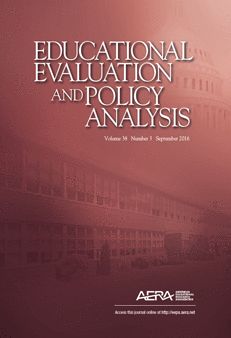1. What are the effects of attending a higher performing school on students’ academic and non-academic outcomes, relative to the school they would otherwise attend?
2. Do the effects of attending a higher-achieving school vary based on the high school’s quality (as measured by test scores and graduation rates)?
Policymakers are implementing reforms with the assumption that students do better when attending high-achieving schools. In this article, we use longitudinal data from Chicago Public Schools to test that assumption. We find that the effects of attending a higher performing school depend on the school’s performance level. At elite public schools with admission criteria, there are no academic benefits—test scores are not better, grades are lower—but students report better environments. In contrast, forgoing a very low-performing school for a non-selective school with high test scores and graduation rates improves a range of academic and nonacademic outcomes.
The final, definitive version of this paper has been published in Educational Evaluation and Policy Analysis, October 2016 by SAGE Publications Ltd./SAGE Publications, Inc., All rights reserved. © 2016




